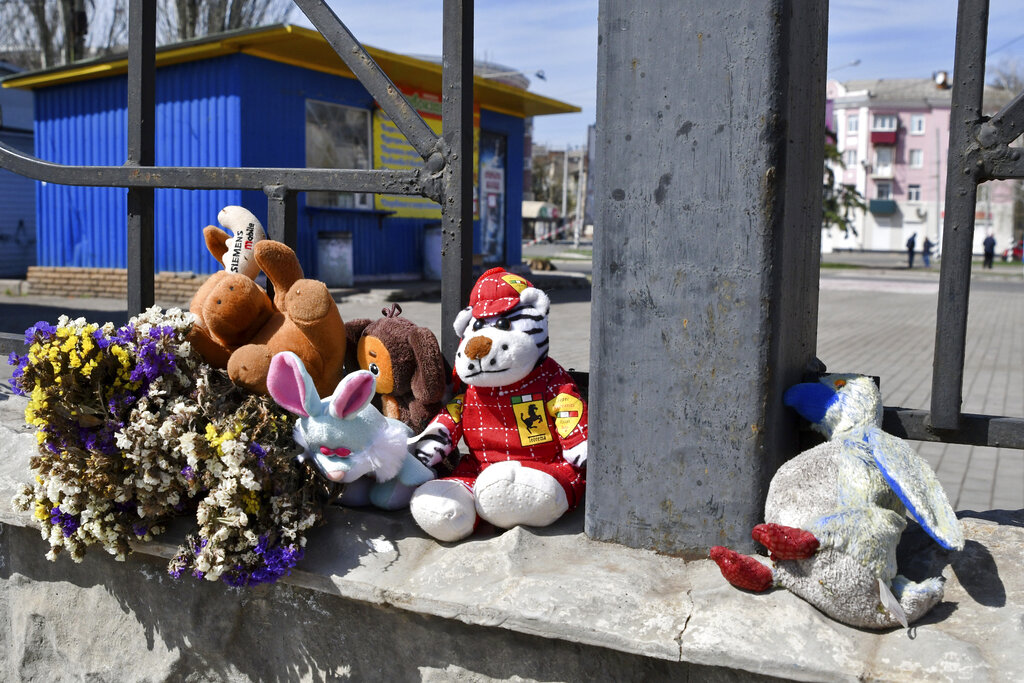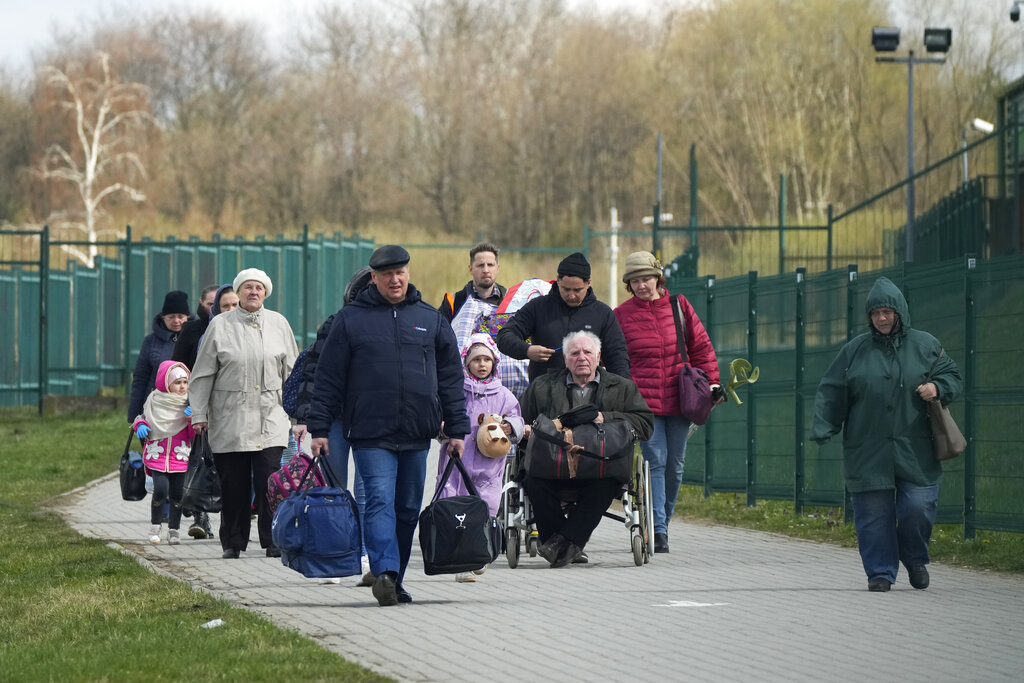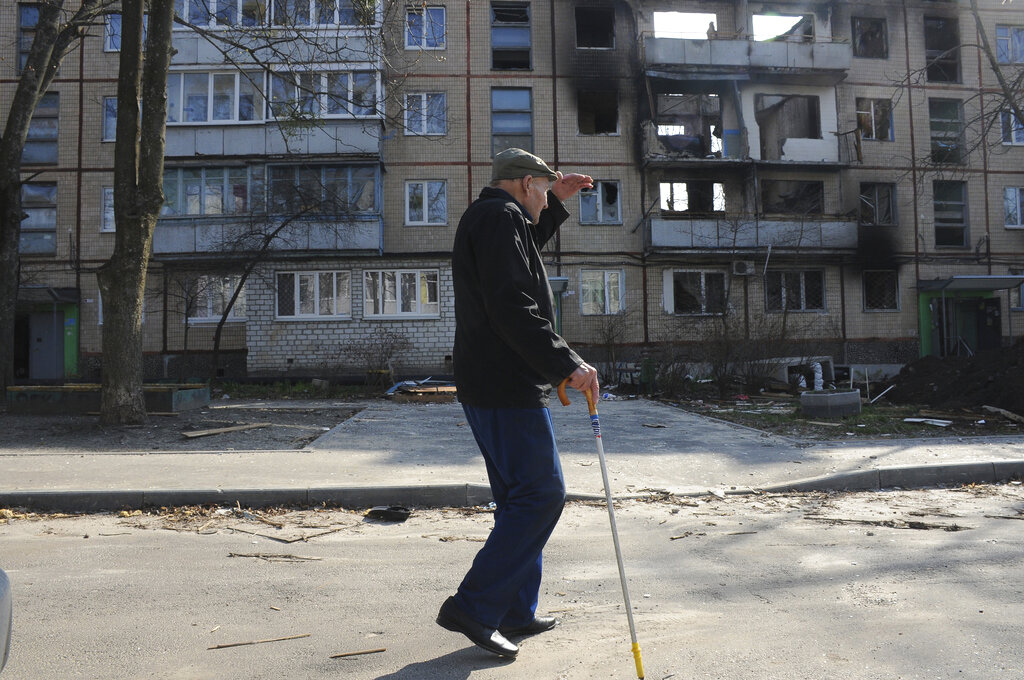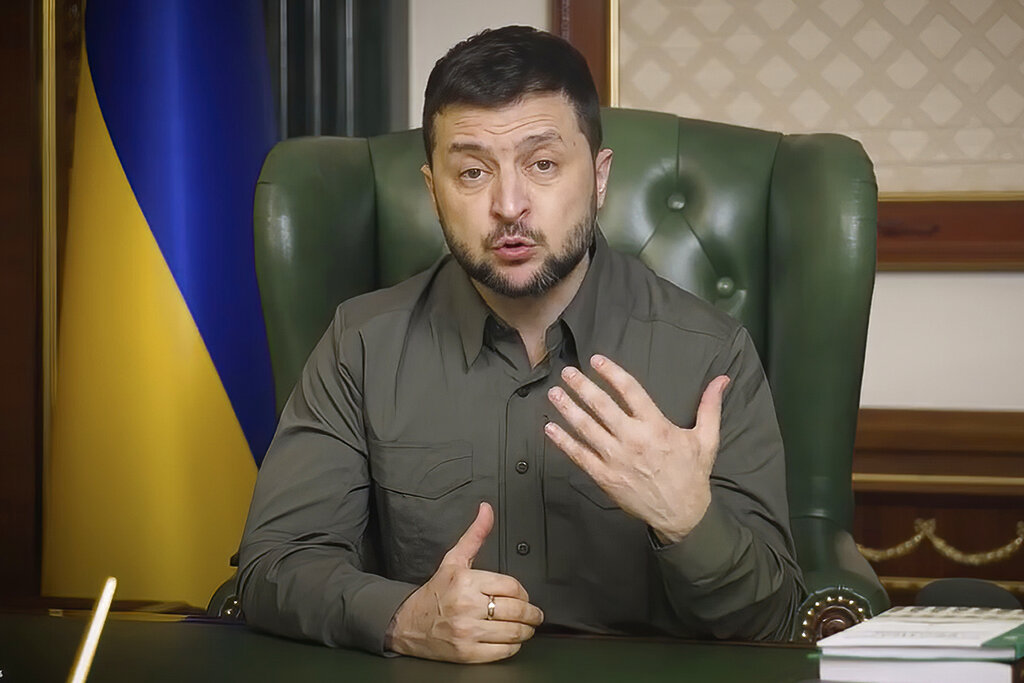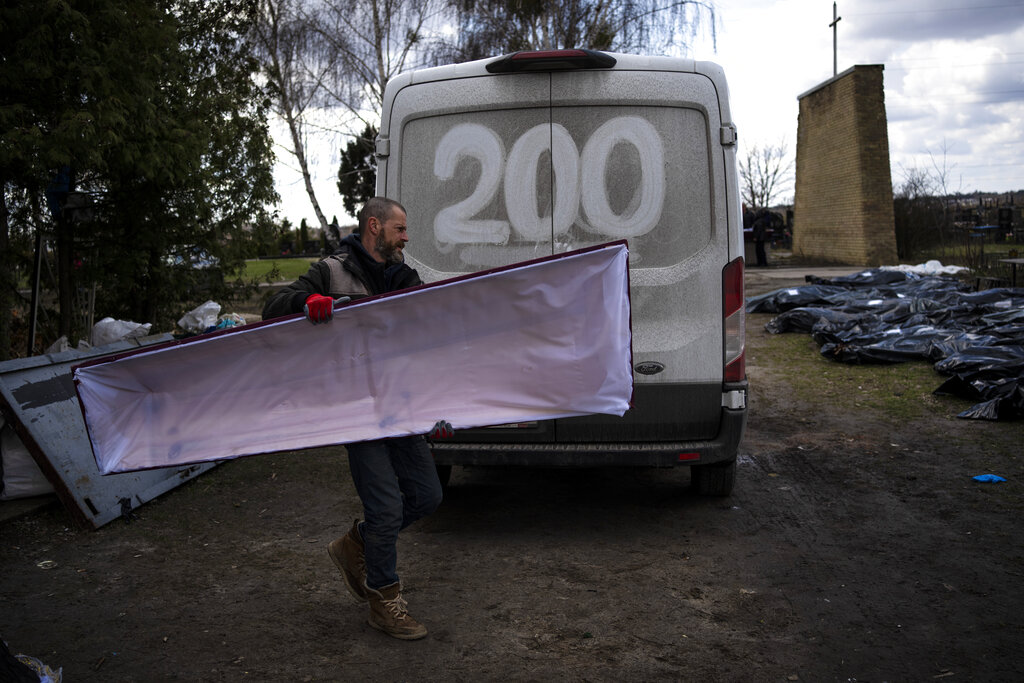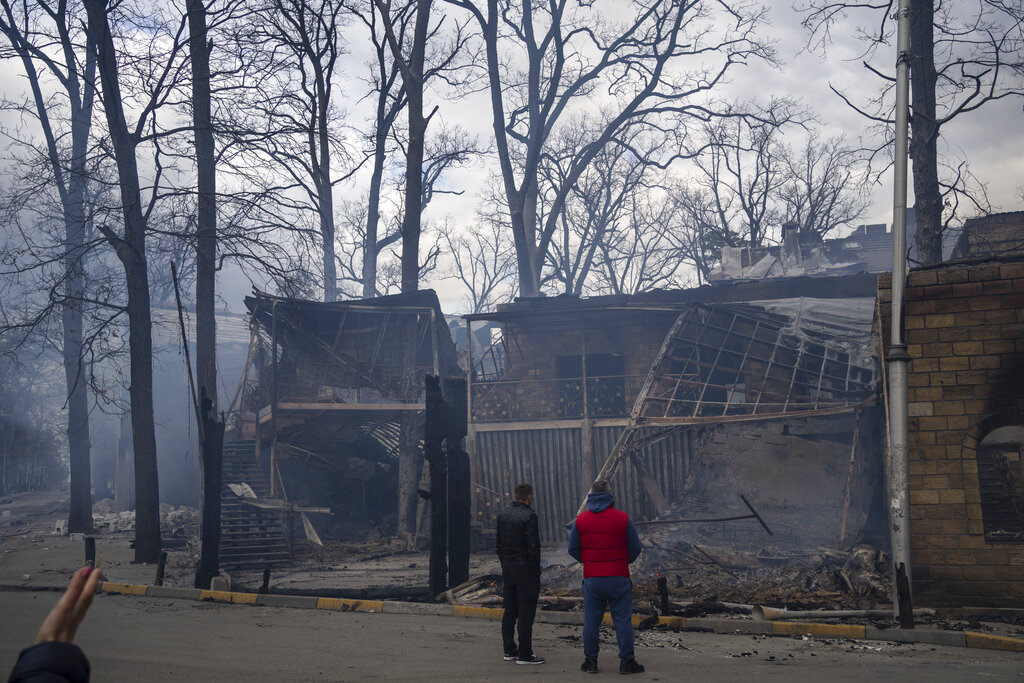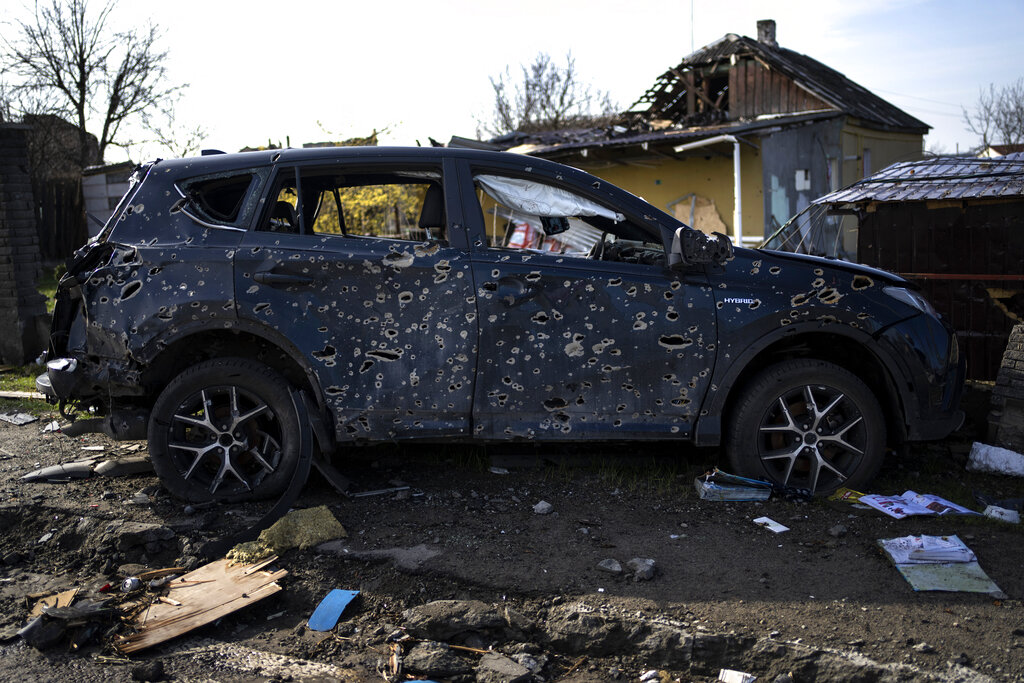(NewsNation) — In Ukraine, Russian forces are directing attacks toward the east as Ukrainian President Volodymyr Zelenskyy asked South Korea on Monday, and Western leaders, to provide his country with weapons for the ongoing invasion.
“Russian troops will move to even larger operations in the east of our state,” Zelenskyy warned in an overnight address. He says the fate of the sovereign country depends on whether the United States and other world leaders help match a surge in Russian weaponry.
“If Ukraine is able to receive such weapons, it will not only help us save the lives of our ordinary citizens but also provide Ukraine an opportunity to survive as a nation, and also help prevent other countries from being attacked by Russia,” Zelenskyy told South Korean lawmakers in a video address.
Hudson Institute Senior Fellow Bryan Clark appeared on NewsNation Prime to discuss Zelenskyy’s request.
“I think he’s going to get some of what he’s asking for. What he’s looking for actually is to get beyond just the stinger missiles and the Javelin anti-tank weapons and similar weapons they’ve been getting from the West thus far,” Clark shared.
Clark said Ukraine wants something to be able to defend against cruise missiles the Russians have been sending against Ukrainian targets.
In a strike announced Monday, Russia said that it hit four S-300 launchers provided by a European country it didn’t name. Slovakia gave Ukraine just such a system last week but denied it had been destroyed. Russia previously reported two strikes on similar systems in other places.
Seven weeks of war in Ukraine has flattened cities, killed thousands and isolated Russia economically and politically. Mariupol’s mayor told The Associated Press Monday that more than 10,000 civilians have died in the Russian siege of the city.
The war has also shattered Ukraine’s economy, with the World Bank estimating it will shrink by more than 45% this year. Experts predict the next phase of the battle may begin with a full-scale offensive that could determine the course of the conflict.
Questions remain about the ability of depleted Russian forces to conquer much ground after their advance on the capital, Kyiv, was repelled by determined Ukrainian soldiers. Britain’s Defense Ministry says Russia is trying to compensate for mounting casualties by recalling veterans discharged in the past decade.
On Monday, Austrian Chancellor Karl Nehammer is set to meet in Moscow with Russian President Vladimir Putin, after meeting with Zelenskyy in Kyiv. Austria, a member of the European Union, is militarily neutral and not a member of NATO.
Also, New Zealand’s Prime Minister Jacinda Ardern said Monday it was sending a military transport plane and a support team of 50 to Europe to carry much-needed equipment and supplies to key distribution centers.
“This war is far from over,” Zelenskyy said Monday. “Russia is aiming to end Ukraine’s independence and separate the country. It is trying to eliminate the culture and language of the Ukrainian nation.”
Ukrainian authorities accuse Russian forces of committing war crimes against civilians, including airstrikes on hospitals, a missile attack that killed at least 57 people at a train station and other violence.
In another report of atrocities, in the village of Buzova outside the capital, Kyiv, charred vehicles and buildings marked an area where local official Taras Didych told Ukrainian media Sunday that bodies showing “evidence of execution” were found after Russian forces withdrew from the region. It was unclear how many bodies were discovered.
Buzova is near Bucha, another of the towns near Kyiv, where hundreds of bodies, many with their hands bound and signs of torture, were found after the Russian retreat. Russia has falsely claimed the scenes in Bucha were staged.
The Pentagon said saw no evidence to support Russia’s claims. A senior U.S. defense official said Russia did conduct an airstrike Sunday on the airport in Dnipro, destroying some equipment, but the official said the U.S. has seen no indication that an air-defense system was knocked out.
Even with reported attacks in certain parts of the country, more and more Ukrainians are choosing to return to their homes and communities to see what is left behind.
NewsNation has been speaking with Maria Shuvalova since the night of the Russian invasion. She calls Kyiv home but had to flee for her safety. Just one day ago, she decided to return to Ukraine’s capital city.
She described driving back into the war-torn area as sad and terrible.
“Passing by places, it was extremely hard and it was extremely different,” Shuvalova said, later adding: “You can feel the city is grieving.”
Meanwhile, Russia has appointed Gen. Alexander Dvornikov, one of its most seasoned military chiefs, to oversee the invasion, according to U.S. officials. Until now, Russia has had no central war commander on the ground.
Dvornikov, 60, takes over as the Russian military prepares to focus on expanding control in Ukraine’s east, where Russia-backed separatists have fought Ukrainian forces in the Donbas region since 2014, declaring some areas independent.
He gained a record for brutality as head of Russian forces deployed to Syria in 2015 to back President Bashar Assad’s government during the country’s devastating civil war.
Russian authorities do not generally confirm such appointments and have said nothing about a new role for Dvornikov, who received the esteemed Hero of Russia medal from President Vladimir Putin in 2016.
Newly released Maxar Technologies satellite imagery showed an 8-mile convoy of military vehicles headed south through Ukraine to Donbas. Military analysts say Russia’s focus is Kharkiv, the second-largest city in eastern Ukraine.
On Sunday, Russian forces bombed Kharkiv and sent reinforcements toward Izyum to the southeast to try to break Ukraine’s defenses, the Ukrainian military command said. The Russians also kept up their siege of Mariupol, a key southern port that has been under attack and surrounded for nearly 1 ½ months.

